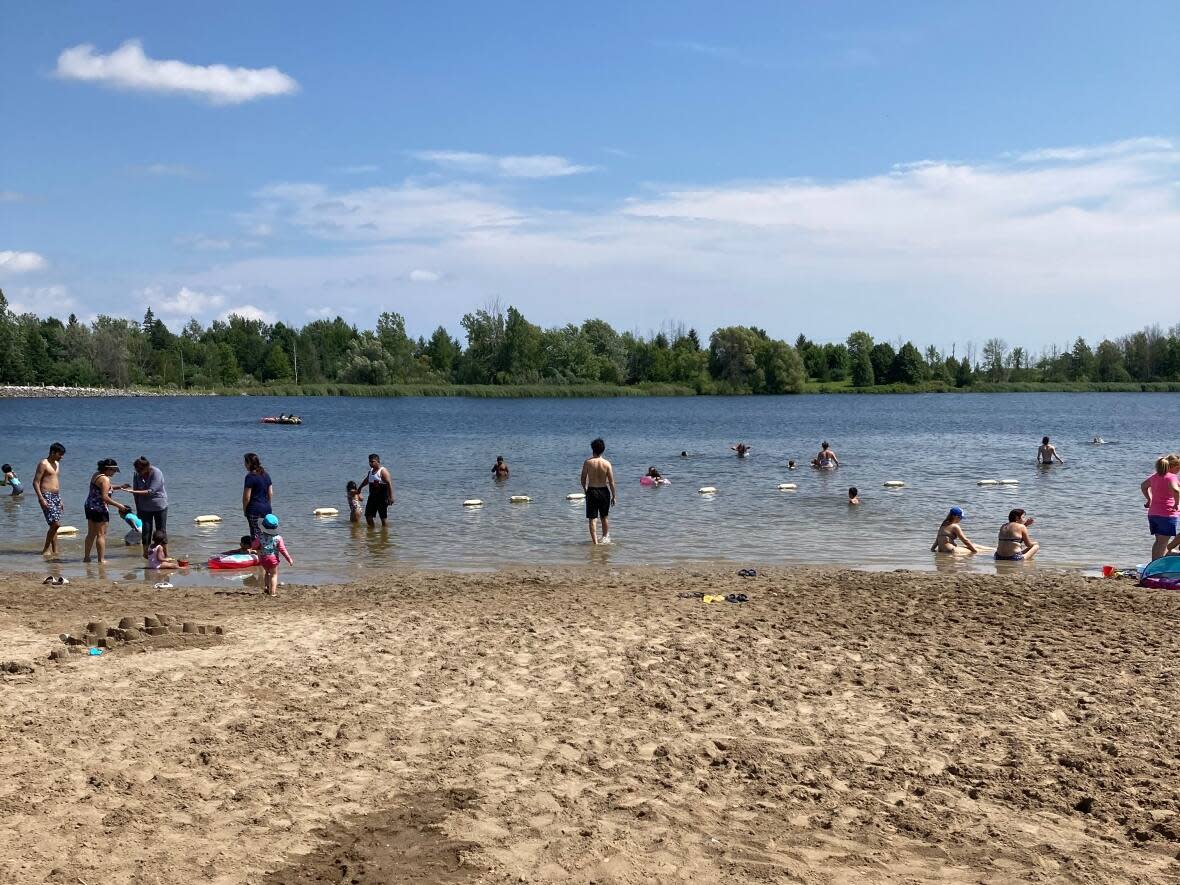Name change for Waterloo, Ont., summer camp is an example of reconciliation, Indigenous leaders say

A popular summer camp held at Laurel Creek Conservation Area in Waterloo, Ont., has changed its name in a move local Indigenous leaders say is a good example of reconciliation.
Camp K is run by St. Andrew's Presbyterian Church in Kitchener.
It recently changed its name to stop using a word, created to sound Indigenous, that's a play on the phrase "come on, I want to go."
"It's appropriating that language inflection that's Indigenous," said Amy Smoke, who is Mohawk Nation Turtle Clan from Six Nations of the Grand River and a co-founder of Land Back Camp, which operated at Laurel Creek in the summer of 2021.
Bangishimo Johnston, who also co-founded the Land Back Camp, said Camp K was set up a short distance from the Land Back Camp site and they could hear the campers sing O Canada each morning.
"As an Indigenous community, you could tell how uncomfortable we were in this space that we created, this decolonial space for our campers," Johnston told CBC Kitchener-Waterloo.
On July 1, which was celebrated by Camp K as Canada Day, Smoke said some of the people at Land Back Camp went to talk to the people running the summer camp to explain it was "really offensive and not a great time right now to be celebrating Canada," given the detection of human remains at sites of former residential school sites.
"That led them to take our concerns back to their new reverend," Smoke said.
Smoke and Johnston said Rev. Marty Molengraaf then visited their site, brought tobacco and sat with them in ceremony. They say he listened to them. Smoke and Johnston offered to speak to the church's camp committee, but Molengraaf said that wasn't necessary.
"He was like, 'No, it's wrong. I'm going to tell them why. We're going to apologize and we're going to change the name,'" Johnston said.
"For me, that's what reconciliation looks like," Johnston said. "That is allyship. That is standing up for us."
'Wrong name'
Molengraaf told CBC Kitchener-Waterloo the decision was a "no-brainer."
Jackee Arlein-Roth, convener of the Camp K committee, also advocated for the name change. She said it was clear that if they followed the camp's values of inclusion, care for each other and care for the environment, then change was necessary.
"When [Camp K] originally was started up, their perspective on it was the name was just a simple play on words, supposed to be fun," she said. "At that time, it was probably the wrong name and I think history would tell us it was."
She said that after having discussions with Land Back Camp, the church also consulted the Ontario Camps Association to get their perspective on how other camps went about changing their names.
They've called it Camp K informally for 25 years, Arlein-Roth said, so it made sense to make that official. The name change was passed unanimously by the church committee and also at a session with church members.
On top of the name change, Camp K started a land recognition last summer that will continue going forward, she noted.
Renaming camp a 'concrete action'
Camp K is not the first camp to change its name. This month, two camps in Muskoka became Campfire Circle, retiring the names Camp Ooch and Camp Trillium.
The Campfire Circle website notes it changed the name to reconcile for having used Indigenous names and culture in the past.
"We have used the Oochigeas and Teomul name and Mi'kmaq and Maliseet legend to build the organization since its founding in 1983. We recognize this was done without permission from those communities and for that we apologize," the group says on its website, noting it worked with Indigenous elders to come up with a new moniker.
Tad McIlwraith, an anthropology associate professor at the University of Guelph, has researched the use of Indigenous culture at Canadian summer camps.
McIlwraith said he can't speak from the Indigenous experience, but from his research, changing a camp's name can be a significant step.
"It does represent a concrete action and concrete actions are necessary in the advancement of reconciliation," he said in an email to CBC Kitchener-Waterloo.
"The renaming of a camp also can't be the only or final action. I would hope that it would represent a beginning of a reconciliation process."
Hope others will learn from experience
Arlein-Roth said she appreciates people from the Land Back Camp spoke to Camp K, and said her only concern is camp officials didn't think about having the conversation sooner.
For Johnston, the way the church handled their concerns was important. Rather than making the Indigenous community speak to a group about why this camp was causing harm, the church took that on.
"He did save us the time, the trauma … the stress of having to go in front of a white committee and voice our concerns, which Indigenous people shouldn't have to do," Johnston said.
"It's great to see these changes taking place and I hope that more organizations or groups within the region will step up and learn from these experiences, learn from the steps that St. Andrews has taken."


